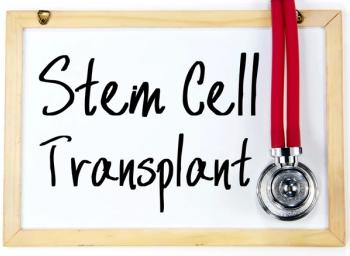
Technology
Latest News

Latest Videos

CME Content
More News

An on-body delivery system approved last fall for paroxysmal nocturnal hemoglobinuria (PNH) has seen rapid uptake and is now being studied for use with isatuximab.

The House Democratic Women’s Caucus wrote a letter urging insurers to comply with both contraceptive coverage requirements and recent Biden administration guidance; several pharmacy chains are experiencing disruptions following a hack at Change Healthcare, UnitedHealth’s technology unit; the FDA said it is not planning to take a tougher stance against clinical trial reporting requirement noncompliance.

Glaucoma specialists were outperformed by a large language model chatbot when it came to diagnostic and treatment accuracy in glaucoma cases.

More than half of US adults have a favorable view of the Affordable Care Act (ACA); smartwatches and rings that claim to measure blood sugar levels without piercing the skin could be dangerous and should be avoided; many believe artificial intelligence (AI) could be the solution to physician burnout.

Discontinuation of asthma drug leaves patients in search of alternative; FDA’s approach to artificial intelligence (AI) raises opportunities and challenges; landmark FDA approval signals hope for millions with severe food allergies.

Medicare beneficiaries are beginning to see the first savings from the Inflation Reduction Act; abortion pills prescribed to patients via telehealth and the mail are safe; nearly half of health care workers have witnessed racism or discrimination in their workplace.

The Federal Trade Commission and HHS will examine generic drug shortage causes; the Biden administration recently dedicated an additional $515 million to a major initiative to study long COVID; cybersecurity experts warn that US hospitals are at risk for attacks and the government is doing little to prevent such breaches.

Expert interviews highlight advancements and challenges in diabetes care technology, including automated insulin delivery systems and continuous glucose monitors, as well as improvements in insurance coverage.

This evaluation looks at a postdischarge digital engagement (PDDE) program using causal inference methods to examine the impact of PDDE on readmission.

This retrospective analysis compared molecular testing outcomes among newly diagnosed cases of metastatic non–small cell lung cancer (mNSCLC) from 2 periods: March 2017 to May 2019 and July 2019 to March 2021.

This systemic review determined telemedicine to be as effective as in-person appointments for the follow-up of patients with atopic dermatitis (AD).

This analysis of Medicare data examines the relationships between fragmented readmission, health information exchange, and repeat imaging in older adults with and without Alzheimer disease.

The authors say their 3D model improves on results using traditional 2-dimensional approaches.

Patients with colorectal cancer (CRC) could participate in telehealth and e-health interventions to promote their sexual health, although efficacy of these interventions needs to be further studied.

Mike Brown, vice president of managed services at Cardinal Health, discusses Cardinal Health's goals to to leverage technology, while reducing costs to the health care system.

Among the 10 patients in the retrospective analysis, the median overall survival after allogeneic hematopoietic stem cell transplantation (allo-HSCT) for relapsed/refractory diffuse large B-cell lymphoma (R/R DLBCL) was 21 months.

Bevey Miner, executive vice president of health care strategy and policy, Consensus Cloud Solutions, discusses the historic progression of health information technology and the role interoperability plays in secure exchanging of patient data.

Mike Brown, vice president of managed services at Cardinal Health, discusses how remote pharmacy services are revolutionizing patient care by improving accessibility and medication safety.

A predictive model utilizing serum metabolic profiles was able to distinguish ovarian cancer from control samples with 93% accuracy, according to a new study.

Separate machine learning models were able to effectively predict both the length of hospital stay and the risk of prolonged hospitalization in people living with HIV.

This new economic valuation of the societal and health care benefits of gene therapy to treat sickle cell disease (SCD) concludes the highly personalized treatment has potential to be cost effective if priced below $2 million.

Virtual reality (VR) combined with pulmonary rehabilitation was more effective than pulmonary rehabilitation alone in improving the pulmonary function, exercise capacity, and mental health of patients with chronic obstructive pulmonary disease (COPD).

A letter from the guest editor highlights how the findings in this special issue draw attention to critical questions that have arisen from health care’s digital transformation.

This analysis uses claims and electronic health records from 2021 to examine racial and ethnic variations in immune-mediated inflammatory diseases in the United States.

CMS has announced new federal rules that require health insurers to streamline requests to cover treatments; nearly 50,000 veterans used the emergency suicide prevention program launched by the Department of Veteran Affairs in 2023; the FDA recently authorized the first artificial intelligence (AI)-powered medical device to help doctors detect the most common forms of skin cancer.
















